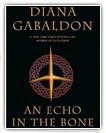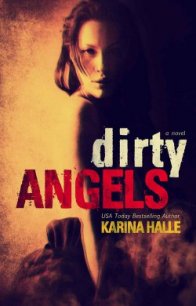Outlander aka Cross Stitch - Gabaldon Diana (библиотека электронных книг txt) 📗
“Dead! Geilie, I’m going back for it. I can’t leave it there.” I turned and started back across the stream.
She caught me from behind and pushed me flat on my face into the shallow water. Floundering and gasping, I managed to rise to my knees, sloshing water in all directions. Geilie stood calf-deep in the stream, skirts soaked, glaring down at me.
“You bloody pig-headed English ass!” she shouted at me. “There’s nothing ye can do! Do ye hear me? Nothing! That child’s as good as dead! I’ll not stand here and let ye risk your own life and mine for some crack-brained notion of yours!” Snorting and grumbling under her breath, she reached down and got me under the arms with both hands, lugging me to my feet.
“Claire,” she said urgently, shaking me by the arms. “Listen to me. If ye go near that child and it dies – and it will, believe me, I’ve seen them like that – then the family will blame you for it. Do ye no see the danger of it? Don’t ye know what they say about you in the village?”
I stood shivering in the cold breeze of sunset, torn between her obvious panic for my safety, and the thought of a helpless child, slowly dying alone in the dark, with wildflowers at its feet.
“No,” I said, shaking the wet hair out of my face. “Geilie, no, I can’t. I’ll be careful, I promise, but I have to go.” I pulled myself out of her grasp and turned toward the far bank, stumbling and splashing in the uncertain shadows of the streambed.
There was a muffled cry of exasperation from behind me, then a frenzied sploshing in the opposite direction. Well, at least she wouldn’t hamper me further.
It was growing dark fast, and I pushed through the bushes and weeds as quickly as I could. I wasn’t sure that I could find the right hill if it grew dark before I reached it; there were several nearby, all about the same height. And fairies or not, the thought of wandering about alone out here in the dark was not one I cared for. The question of how I was going to make it back to the Castle with a sick baby was something I would deal with when the time came.
I found the hill, finally, by spotting the stand of young larches I remembered at the base. It was nearly full dark by this time, a moonless night, and I stumbled and fell frequently. The larches stood huddled together, talking quietly in the evening breeze with clicks and creaks and rustling sighs.
Bloody place is haunted, I thought, listening to the leafy conversation overhead as I threaded my way through the slender trunks. I wouldn’t be surprised to meet a ghost behind the next tree.
I was surprised, though. Actually, I was scared out of my wits when the shadowy figure slid out and grabbed me. I let out a piercing shriek and struck at it.
“Jesus Christ,” I said, “what are you doing here?” I crumpled for a moment against Jamie’s chest, relieved to see him, in spite of the fright he had given me.
He took me by the arm and turned to lead me out of the wood.
“Came for you,” he said, low voiced. “I was coming to meet you because night was comin’ on; I met Geillis Duncan near St. John’s brook and she told me where you were.”
“But the baby-” I began, turning back toward the hill.
“The child’s dead,” he said briefly, tugging me back. “I went up there first, to see.”
I followed him then without demur, distressed over the child’s death, but relieved that I would not, after all, have to face the climb to the fairies’ crest or the long journey back alone. Oppressed by the dark and the whispering trees, I didn’t speak until we had crossed the brook again. Still damp from the previous immersion, I didn’t bother removing my stockings, but sloshed across regardless. Jamie, still dry, stayed that way by leaping from the bank to a central boulder that stood above the current, then vaulted to my bank like a broad-jumper.
“Have ye any idea how dangerous it is to be out alone at night like that, Sassenach?” he inquired. He didn’t seem angry, just curious.
“No… I mean yes. I’m sorry if I worried you. But I couldn’t leave a child out there, I just couldn’t.”
“Aye, I know.” He hugged me briefly. “You’ve a kind heart, Sassenach. But you’ve no idea what you’re dealing with, here.”
“Fairies, hm?” I was tired, and disturbed over the incident, but covered it with flippancy. “I’m not afraid of superstitions.” A thought struck me. “Do you believe in fairies, and changelings, and all that?”
He hesitated for a moment before answering.
“No. No, I dinna believe in such things, though damned if I’d care to sleep all night on a fairies’ hill, for a’ that. But I’m an educated man, Sassenach. I had a German tutor at Dougal’s house, a good one, who taught me Latin and Greek and such, and later when I went to France at eighteen – well, I studied history and philosophy and I saw that there was a good deal more to the world than the glens and the moors, and the waterhorses in the lochs. But these people…” He waved an arm, taking in the darkness behind us.
“They’ve ne’er been more than a day’s walk from the place they were born, except for a great thing like a clan Gathering, and that might happen twice in a lifetime. They live among the glens and the lochs, and they hear no more of the world than what Father Bain tells them in kirk of a Sunday. That and the old stories.”
He held aside an alder branch and I stooped under it. We were on the deer trail Geilie and I had followed earlier, and I was heartened by this fresh evidence that he could find his way, even in the dark. Away from the fairies’ hill, he spoke in his normal voice, only pausing occasionally to brush away some tangling growth from his path.
“Those tales are naught but entertainment in Gwyllyn’s hands, when ye sit in the Hall drinking Rhenish wine.” He preceded me down the path, and his voice floated back to me, soft and emphatic in the cool night air.
“Out here, though, and even in the village – nay, that’s something else. Folk live by them. I suppose there’s some truth behind some of them.”
I thought of the amber eyes of the waterhorse, and wondered which others were true.
“And others… well,” his voice grew softer, and I had to strain to hear him. “For the parents of that child, maybe it will ease them a bit to believe it is the changeling who died, and think of their own child, healthy and well, living forever with the fairies.”
We reached the horses then, and within half an hour the lights of Castle Leoch shone through the darkness to welcome us. I had never thought I would consider that bleak edifice an outpost of advanced civilization, but just now the lights seemed those of a beacon of enlightenment.
It was not until we drew closer that I realized the impression of light was due to the string of lanterns blazing along the parapet of the bridge.
“Something’s happened,” I said, turning to Jamie. And seeing him for the first time in the light, I realized that he was not wearing his usual worn shirt and grubby kilt. His snowy linen shone in the lantern light, and his best – his only – velvet coat lay across his saddle.
“Aye,” he nodded. “That’s why I came to get you. The Duke’s come at last.”
The Duke was something of a surprise. I don’t know quite what I had been expecting, but it wasn’t the bluff, hearty, red-faced sportsman I met in Leoch’s hall. He had a pleasantly blunt, weatherbeaten face, with light blue eyes that always squinted slightly, as though looking into the sun after the flight of a pheasant.
I wondered for a moment whether that earlier bit of theatrics regarding the Duke might have been overstated. Looking around the hall, though, I noticed that every boy under eighteen wore a slightly wary expression, keeping his eyes fixed on the Duke as he laughed and talked animatedly with Colum and Dougal. Not merely theatrics, then; they had been warned.



